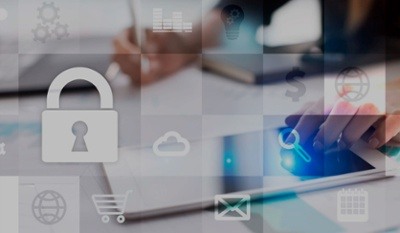Essential cybersecurity for your store in Adobe Commerce
Cybersecurity has become a top priority for e-commerce businesses, especially when handling sensitive customer data and online transactions....
By Role
By Industry
By Target Customer
What We Offer
We drive business growth by improving operational efficiency through process optimization, smart automation, and cost control. Our approach boosts productivity, reduces expenses, and increases profitability with scalable, sustainable solutions
Customer Experience
We design memorable, customer-centered experiences that drive loyalty, enhance support, and optimize every stage of the journey. From maturity frameworks and experience maps to loyalty programs, service design, and feedback analysis, we help brands deeply connect with users and grow sustainably.
Marketing & Sales
We drive marketing and sales strategies that combine technology, creativity, and analytics to accelerate growth. From value proposition design and AI-driven automation to inbound, ABM, and sales enablement strategies, we help businesses attract, convert, and retain customers effectively and profitably.
Pricing & Revenue
We optimize pricing and revenue through data-driven strategies and integrated planning. From profitability modeling and margin analysis to demand management and sales forecasting, we help maximize financial performance and business competitiveness.
Digital Transformation
We accelerate digital transformation by aligning strategy, processes and technology. From operating model definition and intelligent automation to CRM implementation, artificial intelligence and digital channels, we help organizations adapt, scale and lead in changing and competitive environments.
Operational Efficiency
We enhance operational efficiency through process optimization, intelligent automation, and cost control. From cost reduction strategies and process redesign to RPA and value analysis, we help businesses boost productivity, agility, and sustainable profitability.
Customer Experience
Marketing & Sales
Pricing & Revenue
Digital Transformation
Operational Efficiency
The moments we live in will be one of the most challenging for the business world. Today, to the operational risks characteristic of any organization, we must add the risk of business continuity that a cyber attack can generate.
In the global context, eCommerce has generated revenues of 431 billion dollars by the year 2021, and it is estimated that by 2025 it will reach the sum of $563 billion. This growth has been associated with a dangerous increase in the number of attacks an eCommerce platform is exposed to, with devastating consequences for companies with an online sales presence.
Being successful in e-commerce depends not only on offering good products and a smooth experience, but also on having a solid cybersecurity strategy in place. Platforms like Magento provide companies with tools to build scalable and customized online stores, but they also require the implementation of adequate security protocols to prevent threats. Attacks such as data breaches, malware and phishing can compromise customer information and severely impact brand reputation.
Magento provides a secure foundation for developing trusted eCommerce environments, incorporating features such as two-factor authentication, role-based access controls and frequent security patches. However, securing an online store goes beyond the default configuration; a proactive approach is needed that includes constant monitoring, regular updates, and the application of best practices in both code and infrastructure.
This article discusses the main e-commerce cyber risks and how to prevent them when working with Magento. Identifying vulnerabilities and implementing effective measures allows companies to protect their operations, safeguard their customers' data and ensure long-term business continuity.
Roy Miller said, "There are two types of companies, those that have been attacked and those that will attack." Cyber-attacks are a reality that our platform will not escape, so three questions will always arise:

We cannot have a clear answer to this question, and it is not in our control. However, if we start from the fact that an attack is imminent, the best course of action is an immediate action that allows us to be ready when an attack is imminent.
Here are five crucial elements to consider when Securing an eCommerce Platform.
The most important thing about security is a straightforward strategy so that security actions are not isolated elements. When the organization does not have a defined plan, the actions taken can be loose pieces like a puzzle that does not end up being completed because it is unknown what the expected result was.
Generally speaking, 90% of software updates correspond to closing security holes, which are the focus of attention of cybercriminals, so it is essential to keep your E-commerce platform wholly updated.
An SSL certificate is a digital certificate that authenticates a web site's identity and enables an encrypted connection. SSL stands for Secure Sockets Layer, a security protocol that allows an encrypted link between the browser and the web server.
Adding SSL certificates to websites allows us to protect online transactions and safeguard our customers' privacy and information.
In an eCommerce, it is crucial to perform recurrent backups of all the site's data, using specific tools available either through internal support or specialized companies. The truth is that backups are crucial for business continuity in case of data loss.
Google has promoted the HTTPS protocol (Hyper Text Transfer Protocol Secure) because it is a protocol that improves the security of conventional HTTP since it uses SSL/TLS-based encryption for client-server traffic.
It is vital because, in the event of an attacker intercepting the data, the content will remain inaccessible, reducing the risk of certain man-in-the-middle and eavesdropping attacks. The adoption of this protocol is so relevant for Google that it penalizes pages that have not adopted the protocol.
3. Always use two-factor authentication
A strong password is essential because the more specific the passwords are, the easier they can be breached by a brute force attack. However, more important than the strength of the key is the double authentication factor because this is an additional step to the legend, which is not easy to access by a cyber attacker, generating a crucial further action in terms of information protection.
Today, business continuity is associated with our ability to protect our most precious assets, through which financial transactions flow, sensitive information, and any digital support that could compromise the company.
Security ceased to be a secondary issue to become a central axis of our business continuity strategy. After all, what we want is to be prepared to repel and contain any attempt that may arise, so it is vital to take action to protect our eCommerce platforms.
Cybersecurity is no longer optional, but a fundamental pillar of any e-commerce strategy. For companies operating with Magento, understanding the risks and taking steps to mitigate them is key to avoiding financial loss, loss of customer confidence and legal consequences. A single vulnerability can be enough to cause considerable damage.
Magento provides the tools necessary to create a secure store, but the responsibility for maintaining that security rests with each business. Implementing layered protection measures, training your internal team, and keeping up with security updates are essential steps in a comprehensive defense strategy.
Protecting your Magento store is protecting your brand, your customers and your revenue. By prioritizing cybersecurity, businesses can operate with confidence and build strong relationships in an increasingly interconnected environment.

Cybersecurity has become a top priority for e-commerce businesses, especially when handling sensitive customer data and online transactions....

With the advent of digitization, companies have more and more channels enabled on the network.

"It’s not enough to protect your data; you need to protect your customers’ data too." – Satya Nadella, CEO of Microsoft Cybersecurity in...